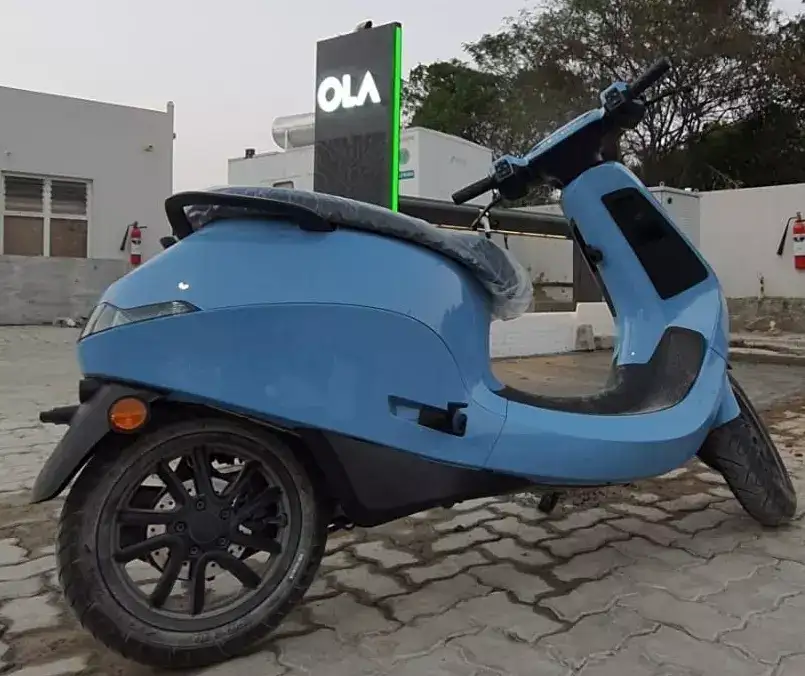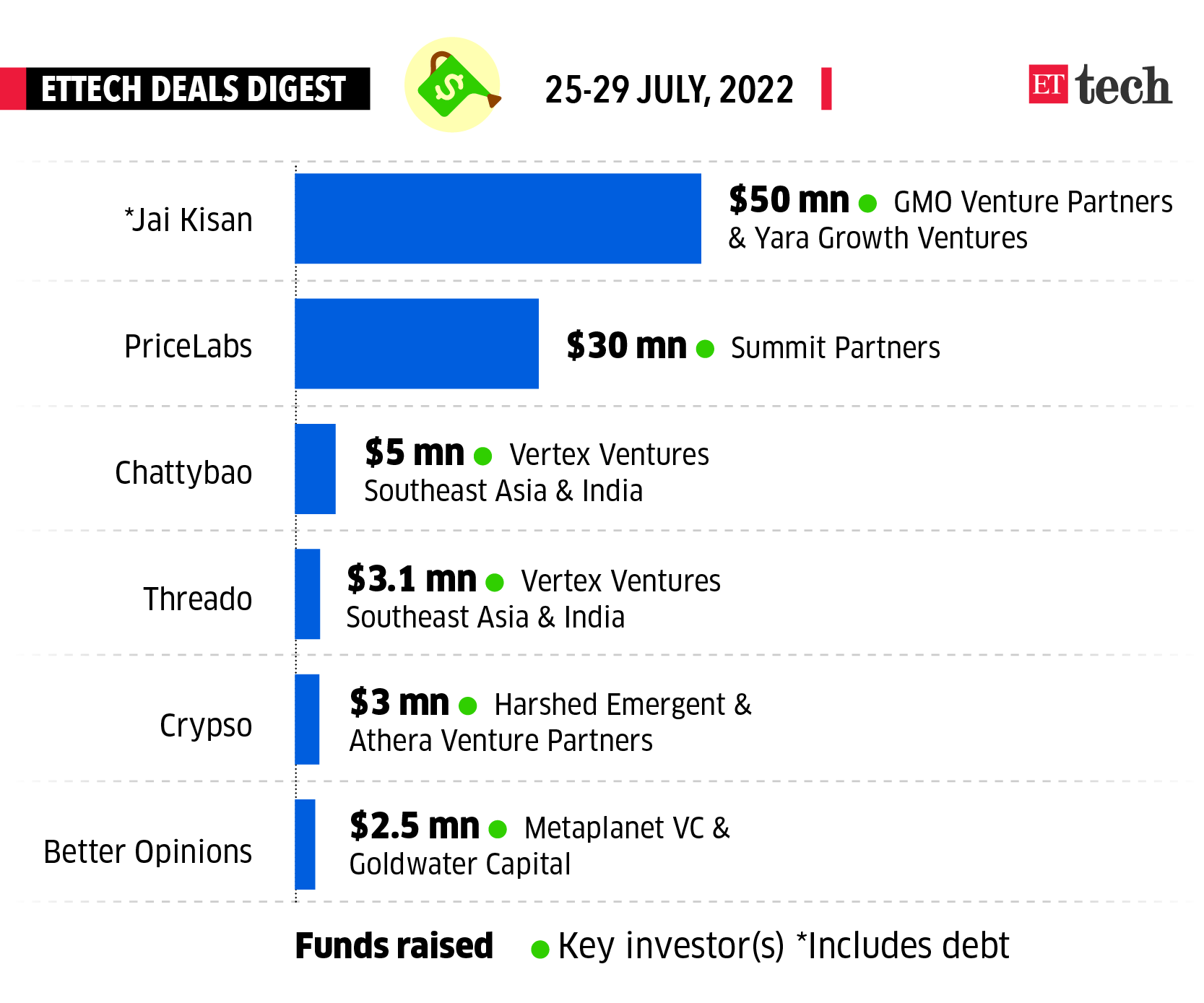Credit: Giphy
Also in this letter:
■ Ola Electric halted EV production over ‘inventory pile-up’
■ Will continue to invest in India and other emerging markets: Amazon
■ Now, Zilingo COO Aadi Vaidya calls it quits
India blocks BGMI over China data sharing concerns: report

The Indian government used its powers under the IT Act to block Krafton’s Battlegrounds Mobile India (BGMI), the local version of the wildly popular mobile game PUBG, Reuters reported, citing an unnamed government source.
BGMI had more than 100 million users in India.
Why? The government is concerned about its data sharing and mining in China, the source said. Krafton, a South Korean company, is backed by China’s Tencent, which had a 13.5% stake in it through an investment vehicle as of end-March, according to a regulatory filing.
Silent ban: The government has not publicly announced the blocking, but the app was removed from Google’s Play Store and Apple’s App Store on Thursday evening.
India invoked a section of its IT law, called 69A, to impose the ban, two sources with direct knowledge told Reuters.
The section allows the government to block public access to content in the interest of national security, among other reasons. Orders issued under the section are generally confidential.
Strong reactions: The ban elicited strong reactions on Twitter and YouTube from popular gamers in India.
“I hope our government understands that thousands of esports athletes and content creators and their life is dependent on BGMI,” tweeted Abhijeet Andhare, a Twitter user with more than 92,000 followers.
War on apps: PUBG was banned in India along with more than 100 other China-linked apps in 2020, after a months-long border standoff between the two countries. The ban has since been expanded to cover more than 300 apps, including popular gaming app Free Fire, owned by Singapore’s technology group Sea Ltd.
Ola Electric halted EV production over ‘inventory pile-up’

Ola Electric suspended production of its electric scooters at its Krishnagiri, Tamil Nadu plant for nearly a week mainly because it had too much inventory, sources told us.
While the company maintained that the plant was shut for annual maintenance and installation of new machines, three people with knowledge of the development said inventory pile-up was the main reason for downing tools.
Details: Ola Electric has about 4,000 scooters piled up at the plant, which it calls ‘Future Factory’. According to a source, when Ola Electric stopped the line on July 21, it was producing only 100 units a day, against its current capacity of 600.
Ola started trial production at the Tamil Nadu plant in October and regular production in December, so it has only been around eight months since production started in earnest.
Denial: “Like most auto companies that go through annual maintenance at their factories, we did too. At no point can this be considered as shutting down production. Hence, clarifying that (information) is untrue,” an Ola spokesperson told us.
The company did not clarify its daily production and booking numbers. It did not elaborate on the duration of the suspension but maintained it was brief.
Ola sacking 1,000 to focus on electric: On Friday morning we reported that Ola is in the process of sacking about 1,000 employees across verticals.
The restructuring exercise – which is expected to last a few more weeks – is aimed at increasing Ola’s focus on its electric mobility business, for which it is hiring “aggressively”, according to executives engaged in the recruitment process.
Still early days in emerging markets like India, will continue to invest: Amazon

After recording a loss of $1.7 billion in its overseas business in Q2, Amazon said it’s still early days for the company in emerging markets such as India and that it will continue to invest in its overseas operations.
Quote: “I think it’s important to remember it’s early days in many of our international countries, particularly in some of our emerging or more recent launch markets such as India, Brazil and the Middle East,” said Dave Fildes, director, investor relations, Amazon.
Overall, Amazon saw a 7% rise in its Q2 revenue to $121 billion, though it incurred a net loss of $2 billion compared to a profit of $7.8 billion a year ago.
Apple nearly doubles India revenue: Meanwhile, Apple nearly doubled its India revenue in Q2 and also saw record growth in other emerging markets, chief executive Tim Cook said in an earnings call.
According to CyberMedia Research (CMR), Apple shipped over 1.2 million iPhones in India in the second quarter — a 94% YoY increase.
Tweet of the day
Zilingo COO Aadi Vaidya quits troubled firm

Beleaguered Singapore-based startup Zilingo has seen another high-profile exit in chief operating officer Aadi Vaidya, two months after the company sacked chief executive officer Ankiti Bose over alleged financial irregularities, Bloomberg reported.
Vaidya joined the company in 2015 and became its COO two years later. He owns a 2% stake in Zilingo.
Temp jobs galore: Meanwhile, according to data from staffing company ManpowerGroup India, the upcoming festive season is set to witness the creation of 500,000 to 550,000 new temporary jobs as companies rush to fulfil pent-up, post-pandemic demand. About 70% of the demand for new jobs will be in delivery, logistics and warehousing.
Swiggy makes WFA permanent: Swiggy has announced a permanent work-from-anywhere option for most of its jobs as part of its ‘Future of Work Policy’. Earlier this year, social commerce startup Meesho announced a similar option for its employees.
ETtech Deals Digest

It was another quiet week, with no startup raising big rounds as VCs remained cautious in a choppy environment. Agri-fintech Jai Kisan and PriceLabs were the only startups that raised moderate amounts.
Here is a list of all startups that raised funds this week.

Today’s ETtech Top 5 newsletter was curated by Zaheer Merchant in Mumbai and Ruchir Vyas in New Delhi. Graphics and illustrations by Rahul Awasthi.
























